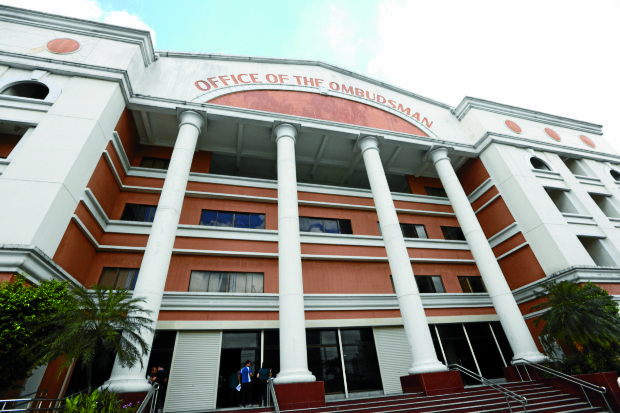Ombudsman wants Sandigan to stop applying ‘inordinate delay’ doctrine
After losing a bunch of cases, the Office of the Ombudsman is asking the Supreme Court to temporarily block the Sandiganbayan from acquitting people as a result of “inordinate delay” on the prosecution side, and to clarify what that means exactly.
In a 16-page motion dated March 23, the Ombudsman asked the high tribunal to clarify the definition of inordinate delay, which had been cited by a number of graft respondents as a violation of their right to a speedy trial, leading to acquittals.
The petitioner urged the Supreme Court to “direct the Sandiganbayan to temporarily suspend the application of the ‘inordinate delay’ doctrine” while it awaits the resolution of its legal challenge.
The Ombudsman has lost a number of cases on the ground of delays at the investigation stage, including the March 2016 acquittal of former Government Service Insurance System (GSIS) president and general manager Winston Garcia over the e-card project, as well as several other accused in the fertilizer fund scam.
“The core issue presented in the instant Petition is how the legal concept of ‘inordinate delay’ should be operationalized vis-a-vis the constitutional admonition that ‘all persons shall have the right to a speedy disposition of their cases before all judicial, quasi-judicial or administrative bodies’,” the motion read.
“While it is well-established in jurisprudence that criminal cases may be dismissed on the ground of denial of the accused’s right to speedy trial, the concept of ‘inordinate delay’ that amounts to a violation of said right has eluded exact definition,” it said.
The Ombudsman noted that Supreme Court jurisprudence had laid down general guidelines on how courts should validate claims that one’s right to a speedy disposition of the case had been violated.
But it said there was a “marked and irreconcilable dissonance” in the Supreme Court’s general guidelines and some of the Sandiganbayan rulings questioned by the Ombudsman, including the Garcia case.
The Ombudsman cited as an example one Supreme Court decision acknowledging that “delays in the investigation process are inevitable especially when a case had to be re-assigned due to staff movement, and when a significant amount of time is needed to judiciously review voluminous documentary evidence.”
“In contrast, in its assailed Resolutions, public respondent Sandiganbayan showed no realistic appreciation of how corruption cases progress through various bureaucratic channels in our country, and how much time is expended for every stage of the process,” it said.
The Ombudsman said the Sandiganbayan’s interpretation of inordinate delay had “far-reaching consequences,” compelling the Supreme Court to “clearly spell out the contours, extent and delimitations of this confusing concept.”
The office also asked the high court to refer its petition from the First Division to the Supreme Court en banc, as it was of “transcendental public importance and will have significant effect on the investigation and prosecution of corruption cases.”















